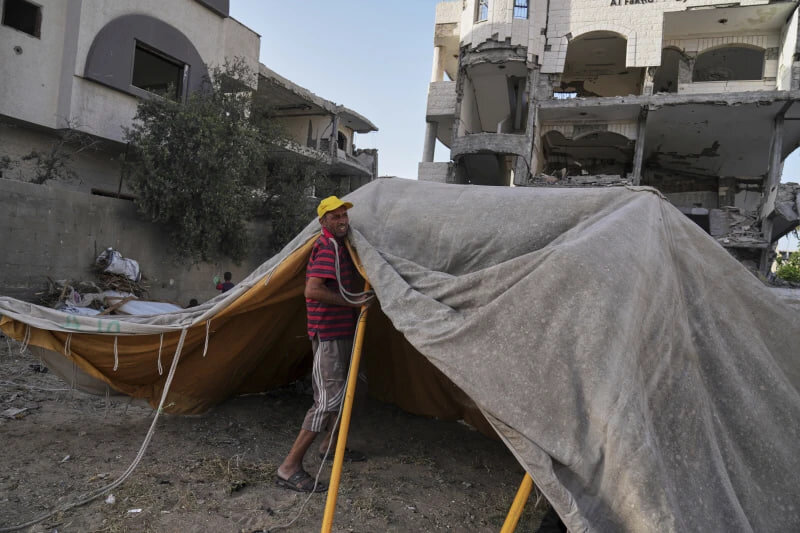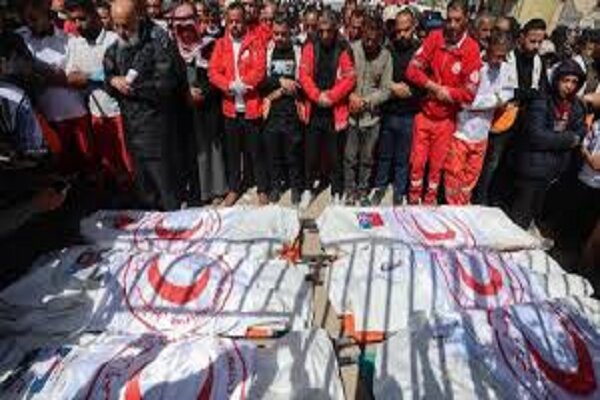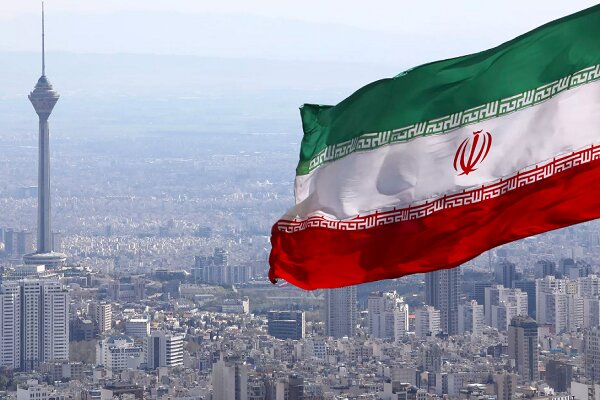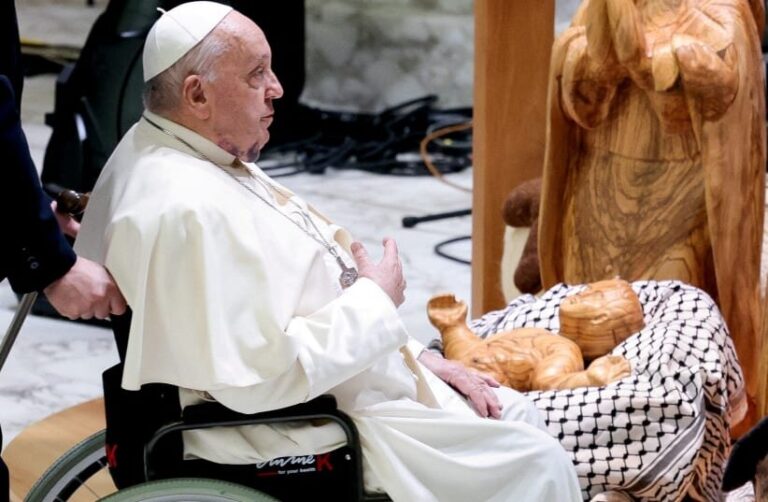Desperate Displacement: Palestinian Family Forced to Relocate for the 10th Time in Just 19 Months Amid Ongoing Israeli Bombardment
The ongoing humanitarian crisis in Gaza has left thousands, including the Abu Jarad family, desperately seeking safety and stability. For the tenth time in 19 months, this family has been uprooted from their home due to the escalating violence in the region. As they navigate through a harrowing cycle of displacement, their story reflects the plight of many Palestinian families caught in the turmoil.
In January, during a temporary ceasefire, Ne’man Abu Jarad, his wife Majida, and their six daughters returned to their home in northern Gaza, hoping for a respite from the relentless conflict. However, their brief sense of security was shattered when the bombs began falling again. “Each time you take this decision to leave, it’s like you’re executing yourself by your own hand,” Ne’man expressed while speaking to reporters in Gaza City, where he and his brothers set up makeshift tents in the debris of a destroyed apartment complex.
The Associated Press has closely monitored the Abu Jarad family’s journey, which mirrors that of approximately 2.3 million Palestinians who have been displaced due to the ongoing conflict. The recent increase in forced displacement has accelerated since Israel resumed military operations on March 18, after breaking a two-month ceasefire.
- Over 430,000 people have been displaced since March 18, with more expected to follow as evacuation orders increase.
- Israeli Prime Minister Benjamin Netanyahu has stated that the military intends to push the population into the far south of Gaza.
- The blockade imposed by Israel since March 2 has resulted in severe shortages of food, fuel, and medical supplies, putting many on the brink of starvation.
Ne’man and Majida appear gaunter than when the AP last spoke to them in January, reflecting the immense strain of providing for their family. Their daughters, ranging from six years old to in their twenties, face the grim reality of hunger. “When one of my daughters tells me, ‘Baba, I want to eat,’ I give her one or two bites so her piece of bread lasts till the end of the day,” Ne’man shared, highlighting the dire circumstances their family endures.
The Pain of Displacement
The Abu Jarads first fled their home in northern Gaza shortly after the onset of intensified bombardments following Hamas’ attack on southern Israel on October 7, 2023. They returned 15 months later during a brief ceasefire, among the many Palestinians returning north in search of safety.
“Our happiness … was like we were entering Paradise,” Ne’man recalled, speaking of their return. Although their house was damaged and many belongings had been lost, the family felt a renewed sense of home and privacy. Ne’man even revitalized his garden, which had once been his passion.
However, their hope was short-lived. On March 18, the Israeli military resumed its campaign with one of the most intense bombardments of the conflict, causing widespread destruction and fatalities. Residents of northern Gaza were urged to evacuate. “We said, let’s just be patient for a bit, maybe the situation will improve,” Majida said, expressing their reluctance to face the pain of displacement once more.
Despite their fears and the pleas of their daughters, who expressed a desire to stay, the relentless shelling and gunfire forced Ne’man to make a difficult decision. “When you find death all around you … at that point I was forced to take the decision,” he recounted.
Seeking Safety Amidst Bombardment
The family moved to a relative’s land in Manshiya, on the outskirts of Beit Lahiya, feeling a momentary sense of safety. However, the bombardment soon caught up with them again. Ne’man described the intense shelling as the heaviest he had experienced throughout the war. They spent three days and nights huddled in their tent, afraid to leave even for basic needs.
“It was so dangerous, we couldn’t even go help him,” Ne’man stated after a drone strike killed one of his cousins just meters away. While others fled, the Abu Jarads hesitated, torn between fear and the desire to remain in their temporary refuge.
Ultimately, Ne’man and his son-in-law ventured to Gaza City to identify a new location for the family. They discovered an empty lot next to a demolished apartment building and returned to gather their family.
Erecting New Tents
Carrying their belongings, the family walked for miles before catching a pickup truck to their new location. Upon reaching Gaza City after sunset, they were taken in by a kind family for the night. Over the next three days, Ne’man’s brothers and other relatives joined them. They cleared rubble, leveled the ground, and erected seven tents to accommodate everyone.
They set up a makeshift toilet and shared a simple meal of broth made from boiled water, tomato sauce, and bulghur wheat, with stale bread mixed in. Yet, despite their efforts to create a semblance of home, the future remains uncertain.
Ne’man expressed deep concern for his daughters, who feel hopeless in the face of ongoing bombardments. “All we can do is try to flee death, over and over,” he said. “We want the torrents of blood to stop. But this is our nation, our land. Even if it is soaked in our blood, we won’t leave it.”
As the conflict continues to escalate, the Abu Jarad family’s struggle for survival serves as a poignant reminder of the larger humanitarian crisis impacting countless families in Gaza.
Source: AP






